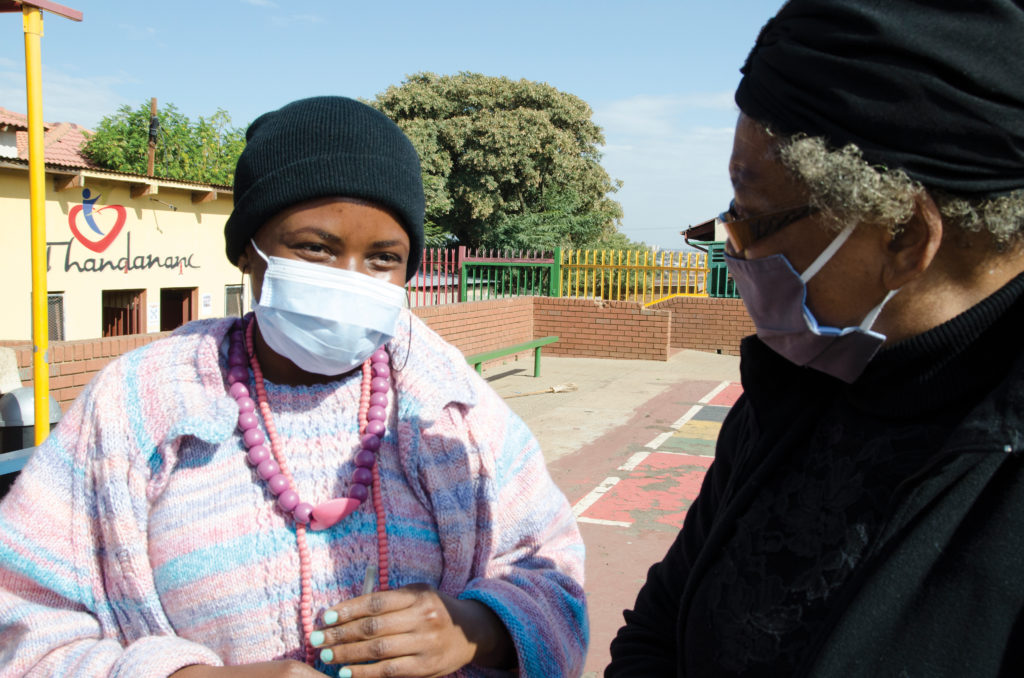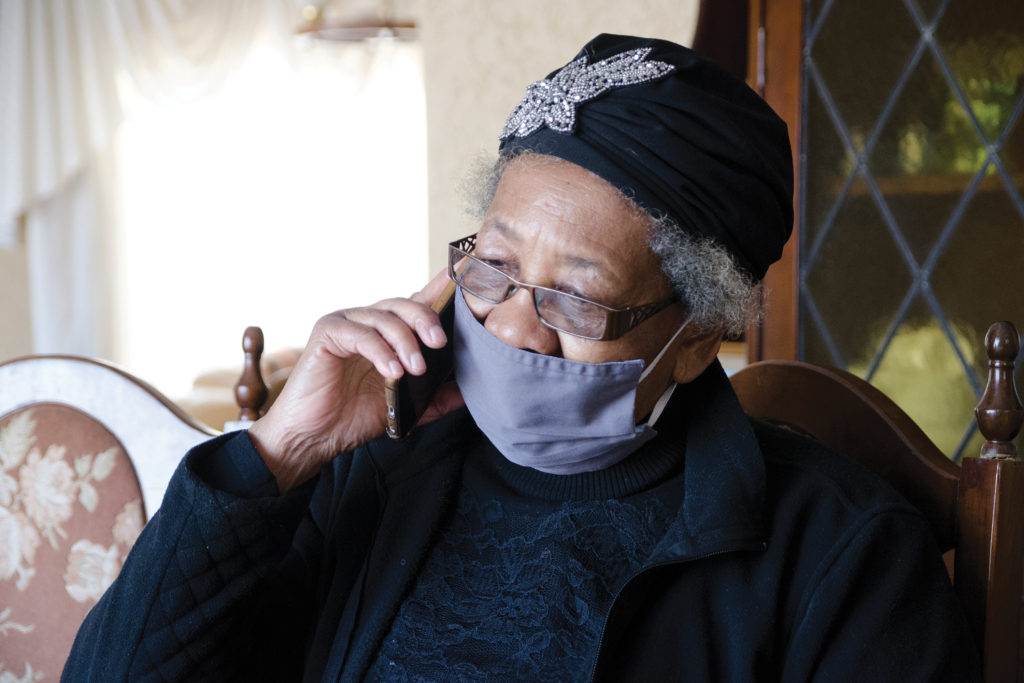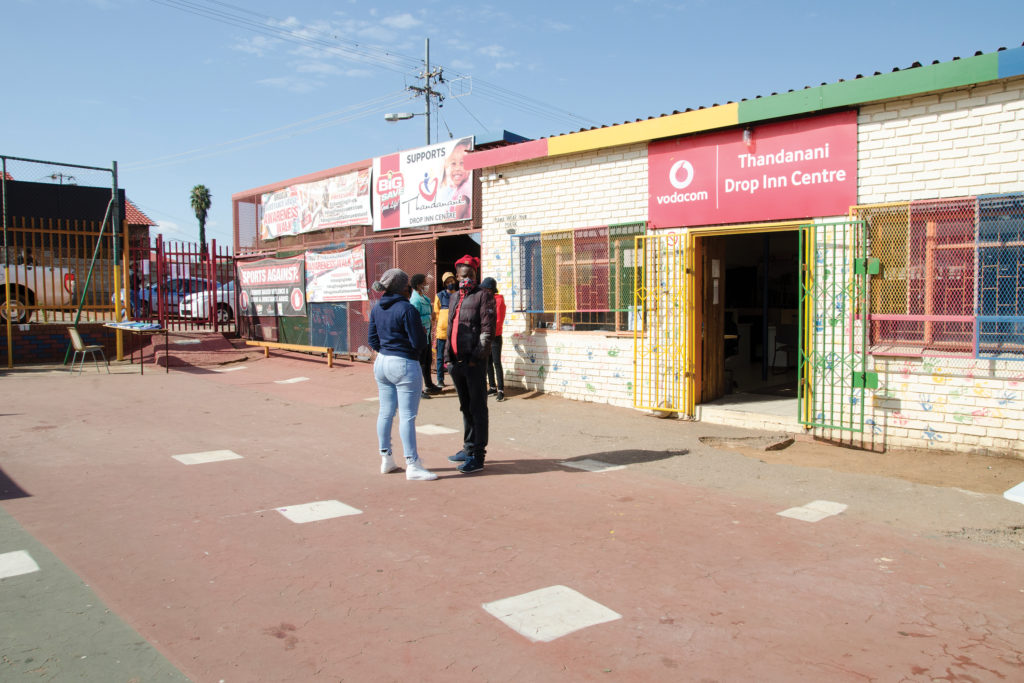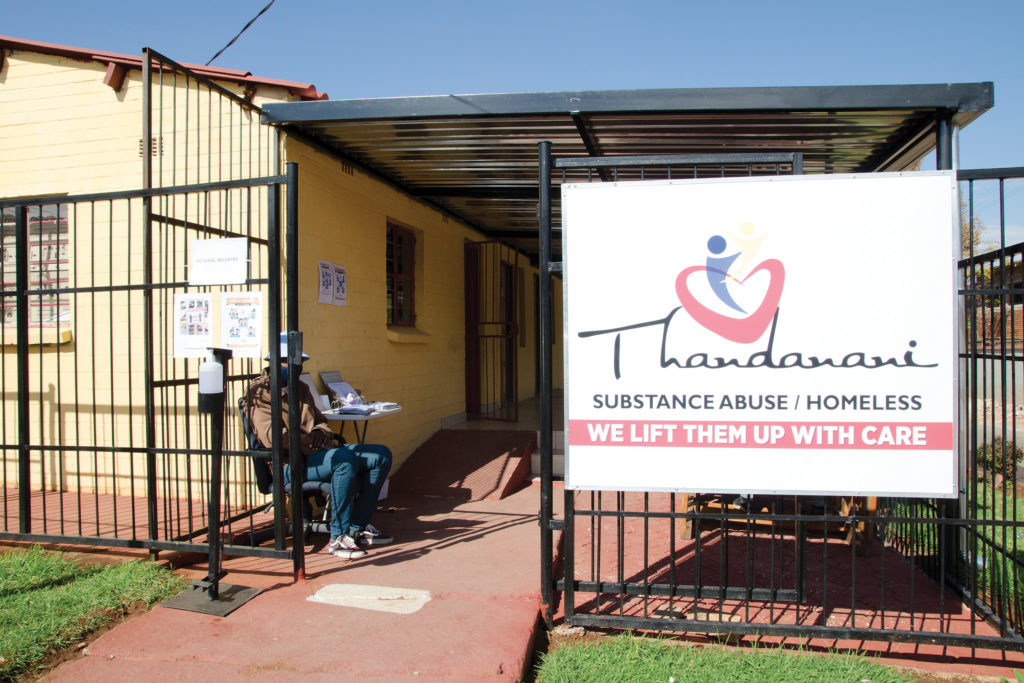FOCUS • INTERGENERATION

The Elderly and Youth, in Need of One Another
Turning over sixty is not synonymous with passivity and waiting. In Mamelodi Township, next to the capital, Pretoria, the existence of Rethabile Service Centre is giving a sense of dignity to people who have much to teach from their long experience of life
BY CARLA FIBLA | JOURNALIST, REPORTING FROM MAMELODI, PRETORIA
This is placeholder text. Begin your paragraph here.
ROSINA RAHLOGO, 75 years old, misses going to the senior centre on foot every day. Covid-19 has also affected the dynamics of the group that she has co-ordinated since 2018 in Mamelodi Township. At the centre they welcome people over sixty years of age with the aim of promoting a healthy lifestyle.
“We have to take care of ourselves and keep active. That’s why we encourage our members to come walking to the place, do some exercise every day and force ourselves to think and keep our brains active. This way we avoid being stressed or depressed as we share how we feel. The elderly also need care”, says Rosina from the living room of her house, on a cold winter day without electricity. She complains because she cannot even prepare tea for her guests, but very decisively, she does not hesitate to make calls to other members of the association to try to visit them.
“Instead of spending all day sitting at home with nothing to do, thinking too much and suffering the loneliness in which we find ourselves sometimes, we decided to create the centre so that people who had never received an education could learn how to read and write, and also share what to do while we talk about our worries”, continues Rosina.
Schedule at Rethabile
Before Covid-19, the schedule of Rethabile Service Centre used to be one hour of exercise in the morning, prayer, followed by half an hour of a meeting to talk about how they are, encourage those who need it and, above all, celebrate being together. They used to share breakfast and take advantage of the proximity of a clinic to check their blood pressure or sugar levels if needed.
The majority of the 70 members are women, but Rosina also encourages men to join them because, as she says, they also need to keep being active in their daily life, and at the centre they never feel alone. “We lost six persons during the pandemic, four of them because of Covid-19 complications. We hope that with the vaccine, the government will allow us to reopen the place and go back”, she explains while waiting for permission from Thandanani, a social centre for children and youth, next to Rethabile, to go and make a visit.
Mother of three children and grandmother of five, Rosina becomes serious while narrating that elderly people go through complex situations, which she describes even as “psychological or mental abuse”, because they always want to help and please their children and grandchildren, and sometimes that creates a lot of anguish and stress for them. “That’s why it is important that we take care of each other”.
Nor does she hide the situations the elderly find themselves in when they have to take care of their grandchildren or cannot decide on their pension because it goes directly to the house in which they are living. “Nobody feels pity for the elderly, and that´s an abuse, physically and spiritually, because they stop thinking about themselves and don´t have access to something that belongs to them after a long life of work,” she continues.

Discipline
In Rethabile they try to be disciplined with the schedules (from 9:00 till 13:30 or 14:00) and the attendance to the activities. “You have to pay R5.00 if you are late and make others wait, just like when you do not wear the right uniform for the activity you are going to do. We have to be serious about what we do”.
The registration fee is R150 per year, but they also get some funds from the government, the Ministry of Social Affairs, to pay for the meals that are offered daily. They also sell some handmade products that they produce while they spend time together in the centre. “That´s the money we save to go out and to organize nearby displacements; also, to support each other when there is a funeral or to celebrate birthdays. We really feel that we are brothers and sisters”.

Thandanani: Youth connection
Rosina leaves her house, giving some instructions to her granddaughters, and in front of her door she finds the person in charge of giving bread to the members of the Service Centre. Before, the bread and some other basic items were taken from the centre, but now it has to go to some houses where it is distributed.
The daily walk to the centre that Rosina used to do before Covid is quite a distance. “Good exercise, to keep you healthy”, she replies when we notice it is more than half an hour’s walk. “The new normal that Covid has forced us to live is very hard for elderly people. Without walking about you feel bad and stop visiting, and not seeing other people is not good for our brain”.
That’s why Thandanani Social Centre, founded by Victor Tswayi, now Deputy Chairperson, and Tabo Kgotsi, Chairperson, is a place that gives so much joy to Rosina. Kate Kekana, its Public Relations Officer, shows us the facilities of the centre while explaining the programmes that are being developed thanks to the time and work of more than 30 volunteers.
There is a big space with computers to allow the users of the centre to get connected to the Internet and a large esplanade used as a playground for the more than 130 children and young people who attend different activities after school, or for meetings or training sessions. “We are dealing with different fields, and the last one—since we got some funding—is about climate change and recycling. We are training people to take care of their neighborhood. It is important to be conscious of the environment and how much it affects our daily routine”, explains Kate while showing us the facilities.

Contact between the elderly and children or young people is very beneficial to both.
Rehabilitation Centre
Across the street there is an annex to Thandanani—called “Love each other”, in Zulu—in which, as Kate comments, the focus is given to the rehabilitation of young people who have fallen into drugs. “We try to keep them out of the street. The problem is that when they recover, there are no opportunities for them, like jobs or something to do, to stay away from the drug atmosphere”.
Mothers holding their babies at their backs and young people—an intense and constant traffic of persons—demonstrates the importance of this place, built by a collective effort, in which everyone feels safe. “You should have seen this place before, it was useless and in a very dilapidated condition. Kate, you have done a very good job here”, says Rosina showing her admiration for the perseverance of the youth to offer a place to gather.
Kate invites us to look inside a third building where they are still working to accommodate homeless people. “We have land to install a prefabricated structure where they can sleep and the next building will be used for cooking, washing clothes and also to have a place to rest”, adds Kate after confirming that the number of homeless are increasing because of the economic effects of Covid-19.
It has been proven by many psychologists that contact between the elderly and children or young people is very beneficial to both. The life experience of the elderly can help those who are just beginning their lives, and for the elderly, receiving the enthusiasm of the young is a gift that keeps them active. Rethabile Centre is attached to Thandanani, two places where citizens take care of each other, in a dignified environment that has been built with effort and faith in a better future.
